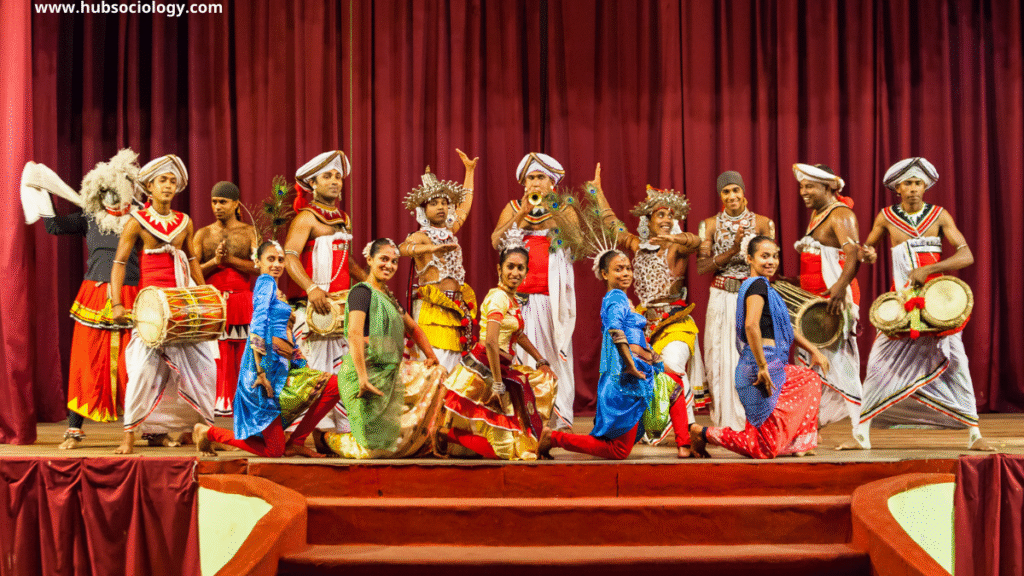Introduction
The concept of human development goes beyond mere economic progress or material well-being. From a sociological perspective, human development is concerned with the holistic growth of individuals and societies, encompassing education, health, social justice, cultural enrichment, equality, and participation in collective life. Unlike traditional notions of development, which often emphasize industrialization, gross domestic product (GDP), or technological advancement, sociology places human beings—their needs, capabilities, and relationships—at the center of the development process. Thus, human development is both an individual and collective phenomenon, rooted in the interaction of social structures, cultural norms, and institutional frameworks.
This article explores human development through a sociological lens, examining its meaning, key dimensions, theoretical perspectives, and challenges in the modern world.

Meaning of Human Development in Sociology
In sociology, human development refers to the enhancement of people’s capacities to live meaningful lives in society. It stresses not only material improvement but also the ability to participate in community life, enjoy social rights, and achieve dignity and freedom. The United Nations Development Programme (UNDP) has popularized the Human Development Index (HDI), which measures development through health, education, and income. However, sociologists argue that human development cannot be reduced to numbers alone—it involves values, social structures, and the lived experiences of individuals.
Thus, sociological human development can be defined as:
- The expansion of human capabilities and opportunities within a social context.
- The promotion of equality, justice, and inclusivity across class, caste, gender, and ethnic groups.
- The improvement of quality of life by ensuring access to health care, education, and cultural participation.
- The process of empowering individuals and communities to shape their own destinies.
Core Dimensions of Human Development
Sociologists emphasize several interrelated dimensions of human development that go beyond economic indicators:
1. Education and Knowledge
Education is a primary driver of human development. It not only equips individuals with skills for employment but also fosters critical thinking, awareness of rights, and social participation. Education promotes mobility across generations, reduces inequality, and strengthens democracy. From a sociological standpoint, education is both a personal resource and a tool of social transformation.
2. Health and Well-being
Good health is essential for individuals to function effectively in society. Sociologists study how access to health care, nutrition, sanitation, and clean water influences social development. They also highlight how health inequalities often reflect deeper structural inequalities such as poverty, caste, or gender discrimination.
3. Social Equality and Justice
True human development is impossible without addressing systemic inequalities. Gender bias, caste-based exclusion, racial discrimination, and class exploitation restrict individuals from reaching their potential. A sociological approach insists that development must promote fairness, justice, and inclusivity in social structures.
4. Cultural and Social Participation
Development also involves participation in cultural and social life. Opportunities to express identity, creativity, and traditions enhance human dignity. Exclusion from cultural life can marginalize groups, weakening their sense of belonging in society.
5. Political Participation and Empowerment
Human development means enabling people to take part in decision-making processes. Political empowerment, freedom of speech, and democratic participation ensure that development is not imposed from above but shaped by the people themselves.
Theoretical Perspectives on Human Development
Sociology offers various theoretical insights into the process of human development:
1. Functionalist Perspective
Functionalists view human development as a process of maintaining social order and stability. Institutions like family, education, religion, and the state function to integrate individuals into society, ensuring their personal growth aligns with collective progress. Education and socialization are key mechanisms for human development in this view.
2. Conflict Perspective
Conflict theorists argue that development is shaped by power struggles between dominant and marginalized groups. Human development cannot be understood without analyzing inequality, exploitation, and class relations. For example, access to education and healthcare is often unequal, benefiting elites more than the poor. Thus, from a conflict perspective, true human development requires restructuring power relations and redistributing resources.
3. Humanist and Capability Approach
Amartya Sen and Martha Nussbaum’s capability approach has deep sociological implications. It emphasizes expanding the freedoms and choices people have, rather than simply measuring material outcomes. Sociologically, this aligns with the idea of empowering communities, respecting diversity, and fostering agency.
4. Postmodern and Cultural Perspectives
Postmodern sociologists highlight the cultural and identity aspects of human development. They stress that development is not a uniform process but varies across contexts. Local traditions, cultural practices, and indigenous knowledge systems must be respected. A one-size-fits-all model of development can undermine cultural diversity.
Human Development and Social Institutions

Family
The family is the first institution of socialization, influencing health, education, and emotional development. Stable and supportive family structures contribute positively to human development. However, inequality within families, such as gender discrimination, can hinder development.
Education System
Schools and universities provide not only knowledge but also social capital. They shape aspirations, identities, and opportunities. However, unequal access to education reinforces social hierarchies, which sociologists critically examine.
Economy
Employment opportunities, fair wages, and social security systems are vital for sustainable development. Sociologists highlight how economic growth without social justice creates “jobless growth,” leaving human development incomplete.
State and Governance
Policies related to welfare, health, and education directly affect human development. Sociologists analyze how governance systems can either empower people or perpetuate inequality, depending on whether they are inclusive or elitist.
Media and Technology
Modern technology and media influence human development by spreading knowledge, creating awareness, and facilitating social movements. However, the digital divide highlights inequalities in access and participation.
Challenges to Human Development in Contemporary Society
Despite progress, several challenges hinder human development in today’s world:
- Economic Inequality – Wealth is concentrated in the hands of a few, creating stark disparities in opportunities.
- Gender Discrimination – Women still face barriers in education, employment, and decision-making.
- Caste, Race, and Ethnic Exclusion – Structural discrimination continues to marginalize communities.
- Unemployment and Job Insecurity – Technological changes and globalization have created precarious work conditions.
- Health Inequalities – Access to health services remains uneven, especially in rural and marginalized communities.
- Environmental Degradation – Pollution, climate change, and resource depletion affect human well-being.
- Cultural Homogenization – Globalization sometimes undermines local traditions and identities, affecting social cohesion.

Human Development in the Age of Globalization
Globalization has reshaped human development by creating new opportunities and challenges. On one hand, it has improved access to technology, education, and communication. On the other, it has deepened inequalities, promoted consumerism, and created cultural tensions. Sociologists emphasize that global human development must balance economic progress with social justice and cultural respect.
Conclusion
From a sociological perspective, human development is not limited to the accumulation of wealth or technological advancement but is deeply connected to social justice, equality, cultural expression, and community participation. It emphasizes the expansion of human freedoms and capabilities within a social framework that values dignity and inclusivity. Education, health, social equality, cultural participation, and political empowerment form the backbone of this process.
Sociology reminds us that human-development is a collective endeavor. Societies must address structural inequalities, respect cultural diversity, and promote democratic participation to ensure that development is truly human-centered. In an interconnected and globalized world, sustainable human-development must prioritize not only economic growth but also social well-being and cultural identity.
Do you like this this Article ? You Can follow as on :-
Facebook – https://www.facebook.com/hubsociology
Whatsapp Channel – https://whatsapp.com/channel/0029Vb6D8vGKWEKpJpu5QP0O
Gmail – hubsociology@gmail.com
Topic-related questions
5 Marks Questions
- Define human-development from a sociological perspective.
- Mention two core dimensions of human-development.
- What role does education play in human-development?
- Write two challenges of human-development in contemporary society.
- What is Amartya Sen’s contribution to the concept of human-development?
10 Marks Questions
- Explain the sociological meaning of human-development with suitable examples.
- Discuss the role of family and education as institutions in promoting human-development.
- How does the conflict perspective explain inequalities in human-development?
- Write a short note on the capability approach in relation to human-development.
- Examine the challenges of human-development in the context of globalization.
15 Marks Questions
- Critically analyze the dimensions of human-development in sociology.
- Discuss the role of social institutions (family, education, economy, and state) in shaping human-development.
- Compare and contrast the functionalist and conflict perspectives on human-development.
- “Human-development is incomplete without social justice and equality.” Discuss with reference to sociological theories.
- Evaluate the impact of globalization on human-development from a sociological perspective.

2 thoughts on “Human Development in Sociological Aspect”